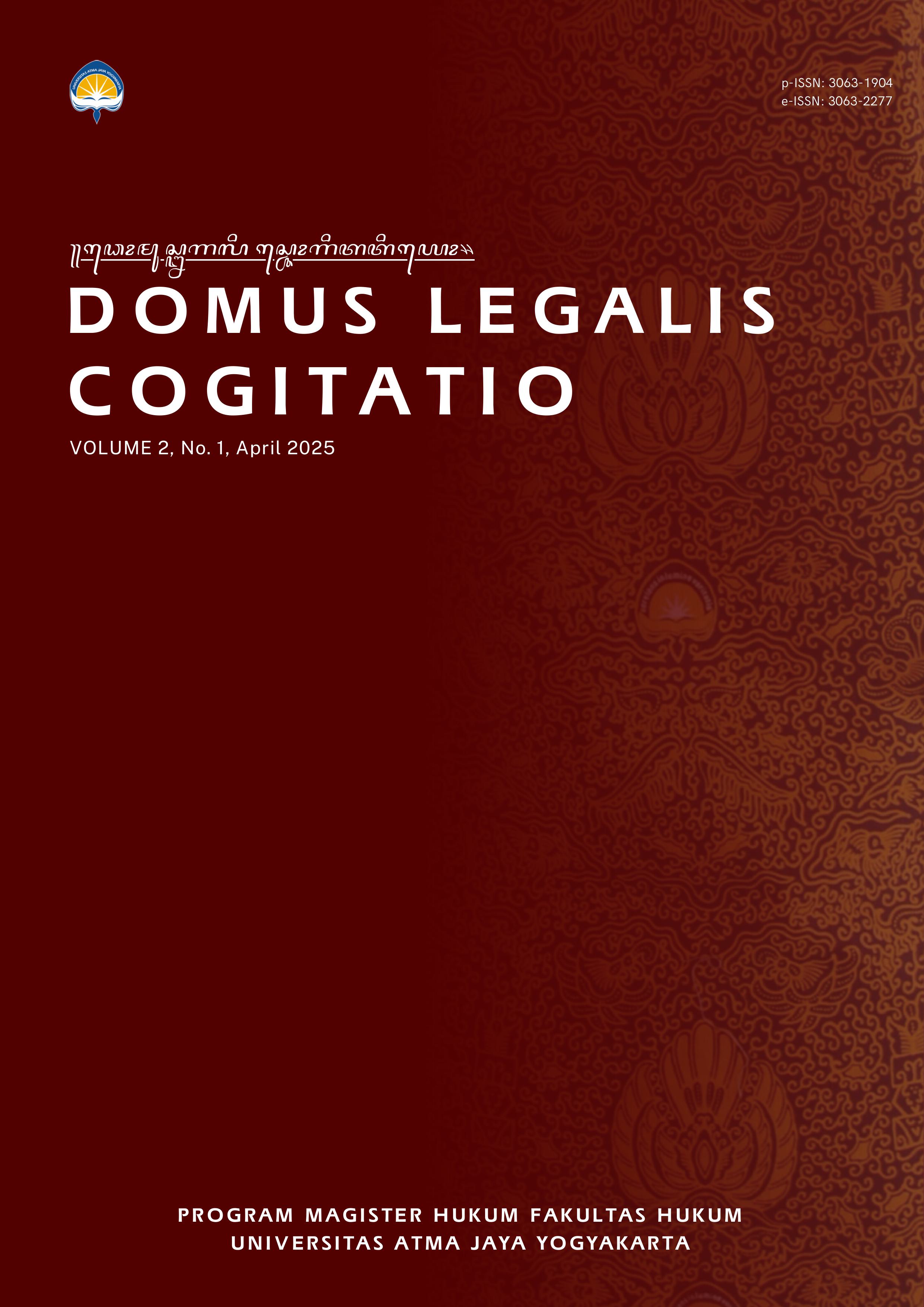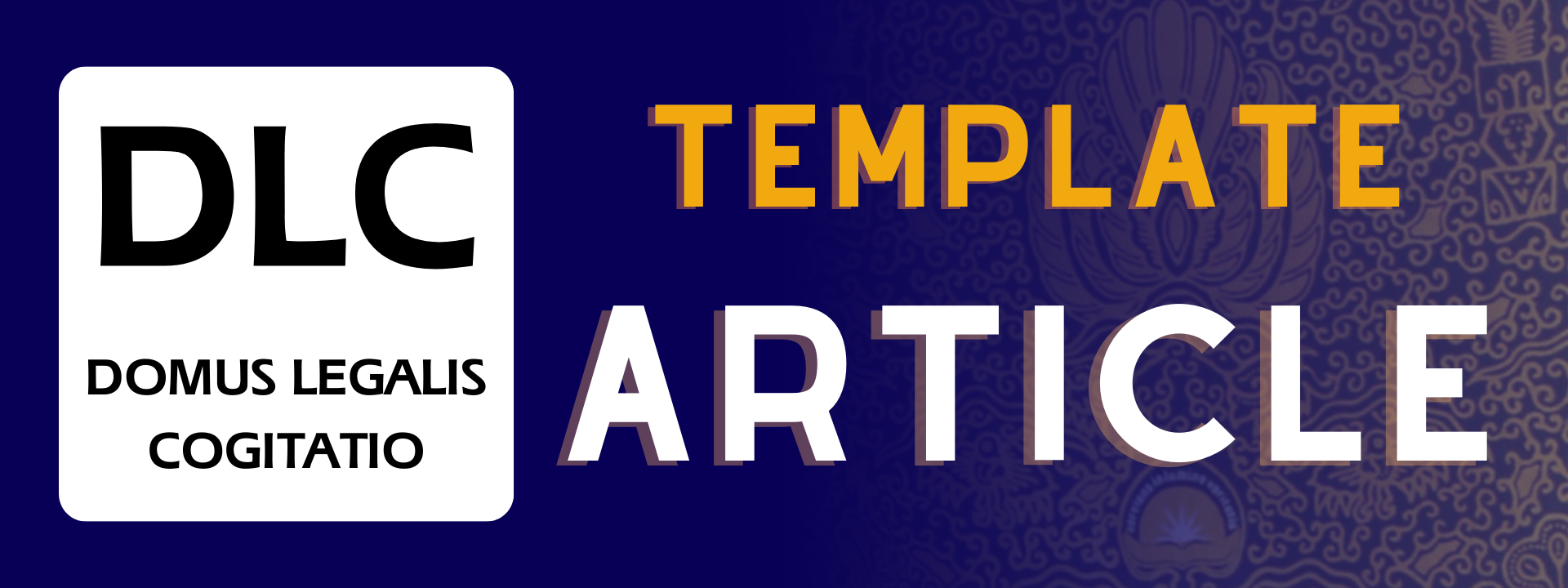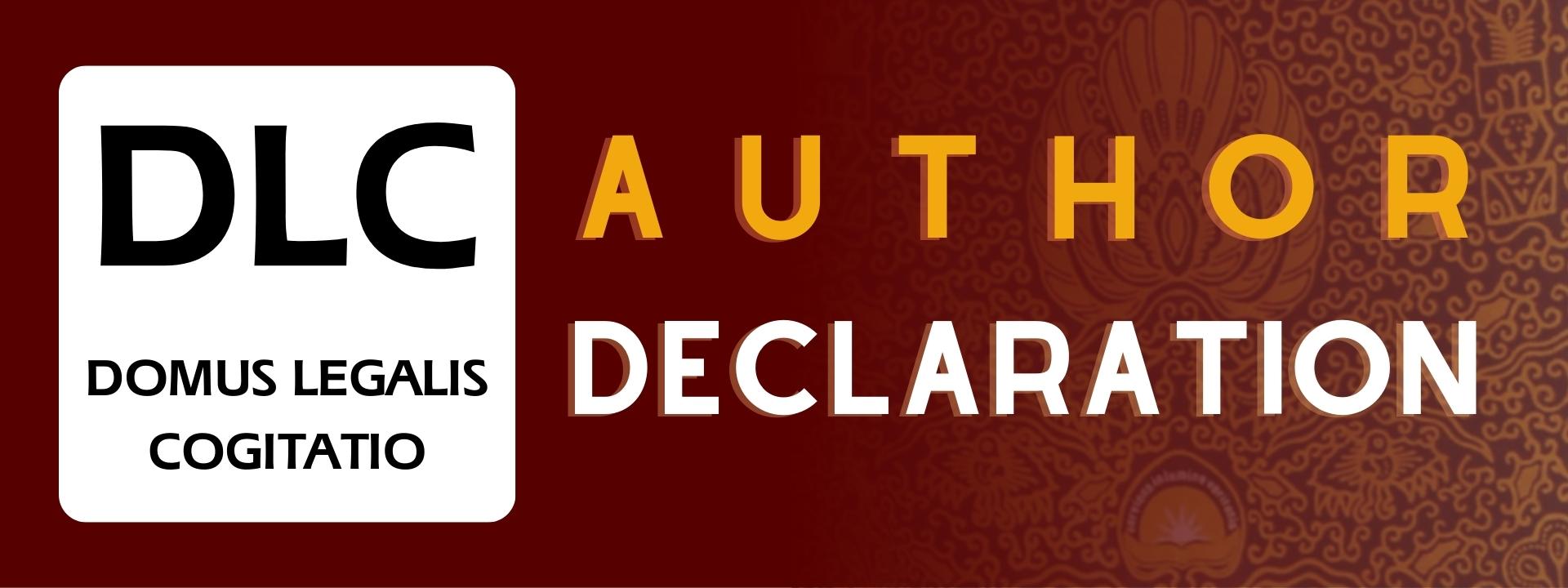THE REBIRTH OF THE LONG-REPEALED ARTICLES ON INSULT AGAINST PRESIDENT IN INDONESIA’S NEW CRIMINAL CODE
DOI:
https://doi.org/10.24002/dlc.v2i1.9927Keywords:
Freedom of Speech, Constitution, Criminal CodeAbstract
The current Indonesian Criminal Code, rooted in the 1915 Dutch Colonial Criminal Code, includes provisions that penalize insults against the president and vice president. Historically, Articles 134, 136 bis, and 137 were utilized to suppress freedom of speech. In 2006, these articles were deemed unconstitutional by the Constitutional Court, signaling a commitment to democratic values. However, the recent reintroduction of similar provisions through Article 218, 219, and 220 of Law No. 1/2023 raises critical concerns about the erosion of democracy and potential violations of constitutional rights, particularly freedom of speech as protected by Article 28E of the Constitution. This study formulates the problem of how these legal changes impact Indonesia’s democratic principles and human rights. Employing a normative legal research methodology, it analyzes relevant laws, including Articles 218, 219, and 220 of the new Criminal Code, alongside previous articles. Furthermore, a comparative study is conducted by examining similar regulations in Turkey and the United States to evaluate different legal frameworks in handling freedom of speech. The findings indicate that reintroducing these provisions, despite the court's ruling, reflects authoritarian tendencies detrimental to Indonesia's democratic progress. This research highlights the urgent need for vigilance in protecting democratic norms and human rights in the face of legislative shifts that threaten dissent and criticism, and offers comparative insights that may guide future legal reform.
References
Books
Husak, Douglas, Overcriminalization The Limits of the Criminal Law, New York: Oxford University Press, 2008.
Kelsen, Hans, General Theory of Law and State, Cambridge: Harvard University Press, 1949.
Marzuki, P.M., Penelitian Hukum, Jakarta: Kencana Prenada Group, 2005.
Pusat Data dan Analisa Tempo, RUU KUHP 2019 dan Dampaknya Bagi Kehidupan Sosial Warga Negara, Jakarta: TEMPO Publishing, 2020.
Rizki Akbari, Anugerah, Nella Sumika Putri, and Widati Wulandari, Terjemahan Beberapa Bagian Risalah Pembahasan Wetboek van Strafrecht dan Wetboek van Strafrecht voor Nederlandsch Indië (KUHP Belanda dan KUHP Indonesia), Jakarta Selatan: Institute for Criminal Justice Reform (ICJR), 2021.
Journal Articles
Acemoglu, D., and Wolitzky, A., “A Theory of Equality Before the Law”, Economic Journal 131, no. 636 (2021): 1429-1465, https://doi.org/10.1093/ej/ueaa116.
Alwan Fillah, Muhammad, “Politik Hukum Dalam Pembaruan Kitab Undang-Undang Hukum Pidana (KUHP) di Indonesia”, Varia Hukum: Jurnal Forum Studi Hukum dan Kemasyarakatan 5, no. 1 (2023): 52-64, https://doi.org/10.15575/vh.v5i1.
Herlinanur, Nanda, Wahjoe Pangestoeti, Adrian Kurnia Sobana Putra, and Rafidah Rahim, “Peran Amandemen UUD 1945 dalam Memperkuat Sistem Check and Balance”, Research Review Jurnal Ilmiah Multidisiplin 3, no. 1 (2024): 111-117, https://doi.org/10.54923/researchreview.v3i1.79.
Kansil, Christine S.T., and Calinka Princess Belinda Laapen, “Kewenangan DPR Dalam Menjalankan Fungsi Legislasi Berdasarkan Pasal 20 Ayat (1) UU Dasar Negara Republik Indonesia 1945”, Jurnal Pendidikan Sejarah dan Riset Sosial Humaniora 4, no. 2 (2024): 63-68, https://doi.org/10.31078/jk1526.
Över, Defne, and Irem Tuncer-Ebetürk, “Insult, Charisma, and Legitimacy: Turkey’s Transition to Personalist Rule”, Sage Journals Sosial & Legal Studies 31, no. 5 (2022): 773-795, https://doi.org/10.1177/09646639211073652.
Rahmi Gettari, Trie, Wira Okta Viana, and Meydianto Mene, “Hak Asasi Manusia dan Kebebasan Berekspresi di Indonesia”, Ensiklopedia of Journal 5, no. 2 (2023): 228-232, https://doi.org/10.33559/eoj.v5i2.1590.
Rohmah, Elva Imeldatur, “Pasal Penghinaan Presiden Dalam Bingkai Negara Demokrasi”, Jurnal Ilmiah Galuh Justisi 9, no. 1 (2023): 16, https://doi.org/10.25157/justisi.v8i1.3160.
Roqib, Muhammad, Happy Anugraha, Sutrisno Putra, Anwar Noris, and Hotma Parlindungan Ambarita, “Hak Atas Kebebasan Berekspresi dan Berpendapat di Indonesia Dengan di Amerika Serikat”, Perspektif Hukum 20 No 1 (2020): 41-53, https://doi.org/10.30649/ph.v20i1.76.
Sari, Mutia, Livety Marwati, Vera Novianti, Elita Fransisca, Christiani Sarira, and Ratih Dwi Rahayu, “Urgensi Pembaharuan Hukum Pidana di Indonesia”, Jurnal IKAMAKUM 3, no. 1 (2023): 347-354, https://openjournal.unpam.ac.id/index.php/IKAMAKUM/article/view/36382/16858.
Sayuti, Ghina Nabilah Effendi, and Illy Yanti, “Freedom Of Speech Without a Direction: Criticism of the Promotion of Freedom of Speech in Indonesia”, Al-Risalah: Forum Kajian Hukum dan Sosial Kemasyarakatan 23, no. 1 (2023): 121-144, https://doi.org/10.30631/alrisalah.v23i1.1389.
Singh, Mansi, “Freedom of Expression and Online Speech”, International Journal Of Novel Research And Development (IJNRD) 8, no. 7 (2023): 668-680, https://ijnrd.org/viewpaperforall.php?paper=IJNRD2307083.
Suryani Widayati, Lidya, “Tindak Pidana Penghinaan Terhadap Presiden atau Wakil Presiden: Perlukah Diatur Kembali Dalam KUHP? Defamation Against The President Or Vice President: Should It Be Regulated In The Criminal Code?”, Negara Hukum 8, no. 2 (2017): 215-234, https://doi.org/10.22212/jnh.v8i2.1067.
Tawang, Dian Adriawan DG, and Rini Purwaningsih, “Criminal Legal Policy On Insults Against The President And Vice President Post Constitutional Court Ruling Number 7/Puu-Xxi/2023”, Pena Justisia: Media Komunikasi dan Kajian Hukum 22, no. 3 (2024): 1, https://doi.org/10.31941/pj.v22i3.4859.
Zahran Ellandra, Athallah, Muhammad Faqih, and Kemal Azizi, “Status Quo Pengaturan Pasal Penghinaan Presiden Sebagai Pembatas Hak Konstitusional Terkait Kebebasan Berpendapat Di Indonesia Beserta Potensi Pengaturannya Di Masa Depan: Studi Kasus Penghinaan Presiden Di Media Sosial (Kasus Ruslan Buton)”, Jurnal Studia Legalia: Jurnal Ilmu Hukum 3, no. 1 (2022): 1-12, https://doi.org/10.61084/jsl.v3i01.20.
Internet
Amnesty International UK, “What Is Freedom of Speech?”, September 23, 2023, https://www.amnesty.org.uk/free-speech-freedom-expression-humanright#:~:text='Freedom%20of%20speech%20is%20the,that%20may%20be%20deeply%20offensive.
Badan Pembinaan Nasional, “Draft Naskah Akademik Rancangan Undang-Undang Tentang Kitab Undang-Undang Hukum Pidanan (KUHP)”, March 2015, https://bphn.go.id/data/documents/naskah_akademik_tentang_kuhp_dengan_lampiran.pdf.
Deane, Dean, “Comparative Law”, March 13, 2025, https://libguides.uclawsf.edu/ComparativeLaw#s-lg-box-32186257.
Human Rights Watch, “Indonesia: New Criminal Code Disastrous for Rights”, December 8, 2022, https://www.hrw.org/news/2022/12/08/indonesia-new-criminal-code-disastrous-rights.
LBH Jakarta, “Pembelaan Terhadap Aktivis Mahasiswa Dibungkam Dengan Pasal Penghinaan Presiden”, January 30, 2017, https://bantuanhukum.or.id/pembelaan-terhadap-aktivis-mahasiswa-dibungkam-dengan-pasal-penghinaan-presiden/.
Lindsey, Tim, “20 Years after Soeharto: Is Indonesia’s ‘Era Reformasi’ Over?”, May 20, 2018, https://pursuit.unimelb.edu.au/articles/20-years-after-soeharto-is-indonesia-s-era-reformasi-over.
NCAC Staff, “The First Amendment in Schools”, September 8, 2021, https://ncac.org/resource/first-amendment-in-schools.
Law and Regulations
Indonesia, Central Government, 1945 Constitution (1945).
Indonesia, Central Government, Law No. 1 of 2023 Regarding Criminal Code (2023).
Indonesia, Central Government, Law No. 39 of 1999 Regarding Human Rights (1999).
United Nations Human Rights, International Covenant on Civil and Political Rights (1948).
United Nations, Universal Declaration of Human Rights (1948).
United States, Government, The Bill of Rights (1789).
Court Decision
Indonesia, Constitutional Court, Decision No 013-022/PUU-IV/2006 (2006).










